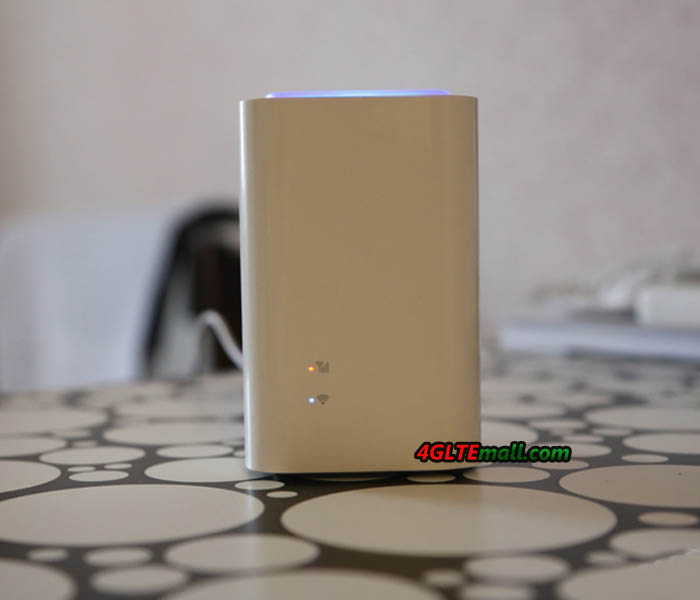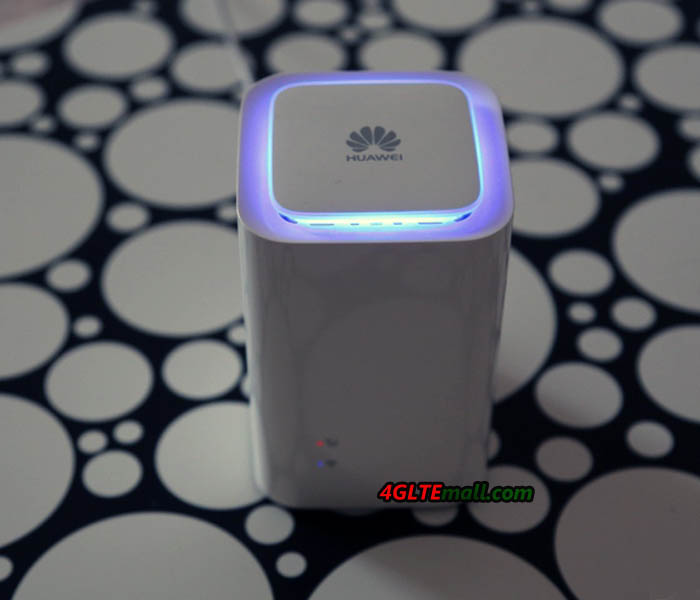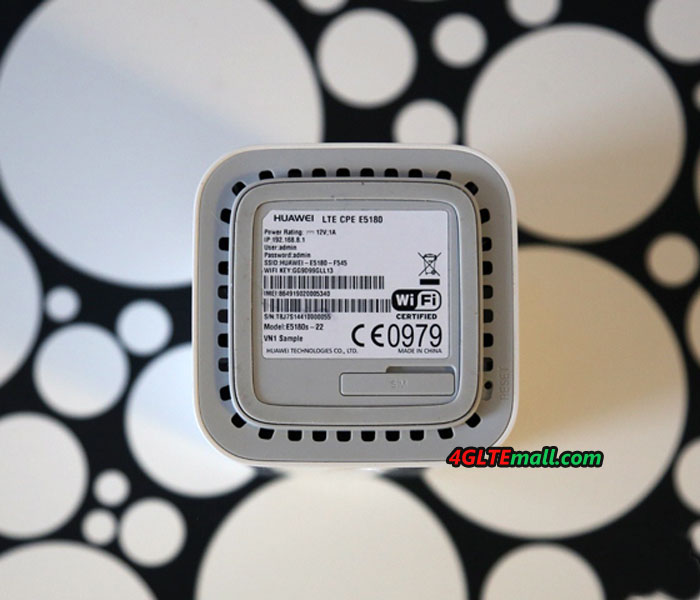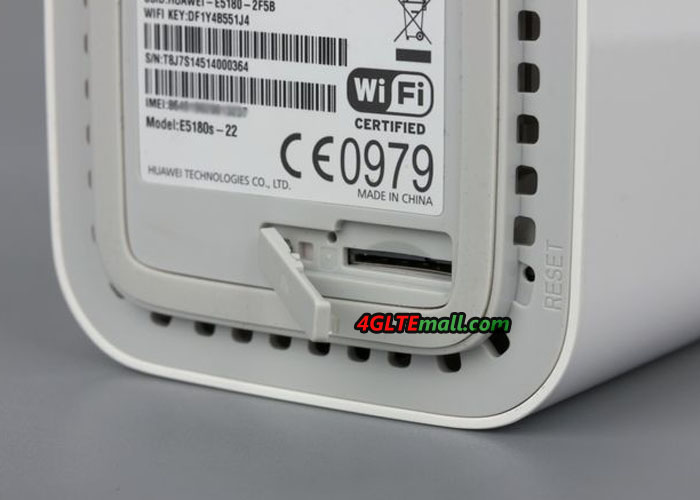Huawei is always the leading the main stream of 4G LTE technology. Now we get a new Huawei 4G LTE router with new technology and design. From the appearance, we can see Huawei had paid much attention on the design of this new router. The router parts are in a white square cabinet with integrated LED lighting. Like Huawei B593, Huawei E5180 is also a LTE category 4 gateway, which could support peak download speed to 150Mbps. And up to 32 wireless users could access internet via E5180.
Huawei E5180 Specifications:
|
Features |
Data |
| Manufacturer & Model: | Huawei E5180 |
| Technologies: | LTE (4G), UMTS (3G) GSM (2G) |
| Frequencies: | * LTE: 800/1800/2600 * UMTS: 850/900/1900/2100* GSM: 850/900/1800/1900 |
| Maximum speed: | * LTE: 150 Mbit/s down, 50Mbit/s up* UMTS: 42.2 Mbit/s down, 5.76 Mbit/s up (when using DC-HSPA+)* GSM: 384 kbit/s (when using EDGE ) |
| WIFI | 802.11b/g/n, up to 32 devices, up to 4 SSIDs |
| Software: | Firmware Version: 21.270.21.00.1080 |
| Others: | Ethernet LAN connection 100 MBit/s, RJ-11 telephone connection, MicroSIM |
Huawei E5180 Appearance and Operation
The Huawei E5180 is packed in a small box including the power adapter and short LAN cable. Usually, the LTE routers are significantly large. At first glance, Huawei E5180 looks very small and light. The workmanship is good, only the port for the MicroSIM card to complain about, because this makes it impossible to use a NANO sim card with adapter. The LED lighting on top of the Huawei E5180 is a beautiful design element and overall very successful. With a short press on the Huawei logo you can see the lights on and off, alternatively you can control the LED via the web interface. A long press to switch the entire router could power on or off.
The operation of Huawei E5180 is very simple. Normally, it is sufficient to simply insert the SIM card, then the device should automatically connect to the Internet. The wireless network is encrypted from the factory, the password is required for network connection, and it’s printed on the label at the bottom of the E5180. The operation and configuration of Huawei E5180 could be finished via a web interface in the browser. To access the web interface, you have to land the address 192.168.8.1, and then enter your username and password. The web interface is well structured and easy to use, also the speed is OK, the load times of each menu are very short. On the home page all important for the connection information is displayed, including about the signal strength, the consumed amount of data separated into uplink and downlink as well as the time spent online.
Huawei E5180 Network mode and Telephone
Huawei E5180 can use all of the current cellular standards. It can work well in LTE, UMTS and GSM networks. On LTE network, E5180 could support peak download speed to 150Mbps. The wireless module in Huawei E5180 works exclusively in the 2.4 GHz frequency band, the area around 5 GHz is not supported. The test showed that my MacBook Air has connected to a maximum of 144 Mbit/s to the router, despite a distance of only 2 meters between the two devices. And a maximum of 32 devices can be connected simultaneously.
The RJ-11 connector for an Analog phone is on the back of Huawei E5180, and it is available only for voice calls over the GSM or UMTS network, for VoIP, there is the web interface requiring no settings. In the test, with a simple analog phone call, the quality is good. Once a call is received on the SIM card, the connected phone is ringing reliably.
Conclusion
Huawei E5180 is without any doubt one of the best LTE routers on the market. If you are looking for a good-looking router, Huawei E5180 would be a perfect option. However, there is No LTE Cat6, no 5 GHz WLAN, no Gigabit LAN, no connectors for external antennas, no DECT and no USB – these are the biggest criticism points to the router.



